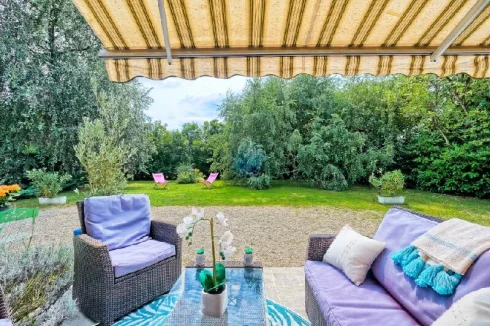How to Buy French Property as an Unmarried Couple
Tuesday 10 September 2019
With many couples buying property in France as unmarried partners, what is the best ownership structure to use?
Buying property in France as an unmarried couple requires some thought as to the ownership structure to be used, due to French forced heirship rules and potential inheritance tax implications.
The heirship rules mean that where there are children, whether from within or outside of the relationship, they have a right to inherit part of the estate of the deceased.
The surviving partner has no automatic legal right to remain in the property, and the children, if they so wished, could enforce sale of the property.
In addition, there is no inheritance tax allowance between an unmarried couple or those outside of a civil partnership, and a high tax rate applies, with the surviving partner then subject to tax at the rate of 60% on the estate of the deceased, after a modest allowance of €1,500.
So what options do you have to get around these problems?
European Succession Law
Since 2015, as a result of changes in European law, it has been possible for owners of French property through a Will to adopt the law of their nationality for the purposes of inheritance law.
Whist rules vary in different countries, this grants testamentary freedom to UK nationals, who can by Will choose to adopt UK inheritance laws on their French property, leaving the property to the surviving partner.
However, the law does not grant exemption from inheritance taxes, so the 60% rate of French inheritance tax would still apply on the estate of the deceased.
You can read more in Adoption of European Succession Law.Tontine
Another option is to use a tontine clause inserted in the deed of sale, a somewhat artificial legal concept, under which there is no recognition that each owner has a separate share in the ownership of the property.
On the of death of one of the parties the surviving owner becomes sole owner and is retrospectively regarded as having been so since the acquisition of the property. It then escapes enforced heirship rules.
However, this means that on the death of the surviving partner only the blood/adopted children of the deceased would have an automatic right to inheritance. For this reason some notaires refuse to use it where this applies.
In addition, it does not entirely deal with the problem of inheritance tax, for there is liability to inheritance tax at the rate of 60% if it is the main residence, provided it is valued at over €76,000.
Démembrement Croisé
One other alternative is to consider buying on a crossed-ownership basis, in a legal ownership structure called démembrement croisé.
This type of structure splits legal ownership of the property between bare ownership (reversionary interest) and the right of use (usufruct) of the property, with a cross-over of rights between the two owners.
Thus, one person buys bare ownership of half of a property and the usufruct of the other half, whilst the other buyer does the reverse, buying the usufruct of the half held by the first person in bare ownership and the bare ownership of the half they hold in usufruct.
Through this arrangement, each person holds bare ownership of their own share and the usufruct of the other.
Upon the death of one of one of the owners, the other recovers the usufruct of the share they already own in bare ownership, without liability to inheritance tax.
The survivor then owns full ownership of half of the property and the usufruct of the other half (which he already held). The heirs of the deceased partner would retain only bare ownership of half of the property.
This means that the surviving partner can continue to remain in the dwelling because they have a right of enjoyment over the whole dwelling.
Although the use of such a structure is frequently done through the shareholding structure of a French property company (Société Civile Immobilière - SCI), it can also be done through direct ownership of the property.
Civil Partnership
Finally, you should consider entering into a French civil partnership or a civil partnership in your home country.
This grants a greater protection to the surviving partner, as well as exemption from liability to French inheritance tax between the couple.
You can read more in French Civil Partnerships.Needless to say, this can only be general, summary advice; you need to seek good professional advice from your notaire/legal adviser on your individual circumstances and the full implications of each option.
Thank you for showing an interest in our News section.
Our News section is no longer being published although our catalogue of articles remains in place.
If you found our News useful, please have a look at France Insider, our subscription based News service with in-depth analysis, or our authoritative Guides to France.
If you require advice and assistance with the purchase of French property and moving to France, then take a look at the France Insider Property Clinic.





